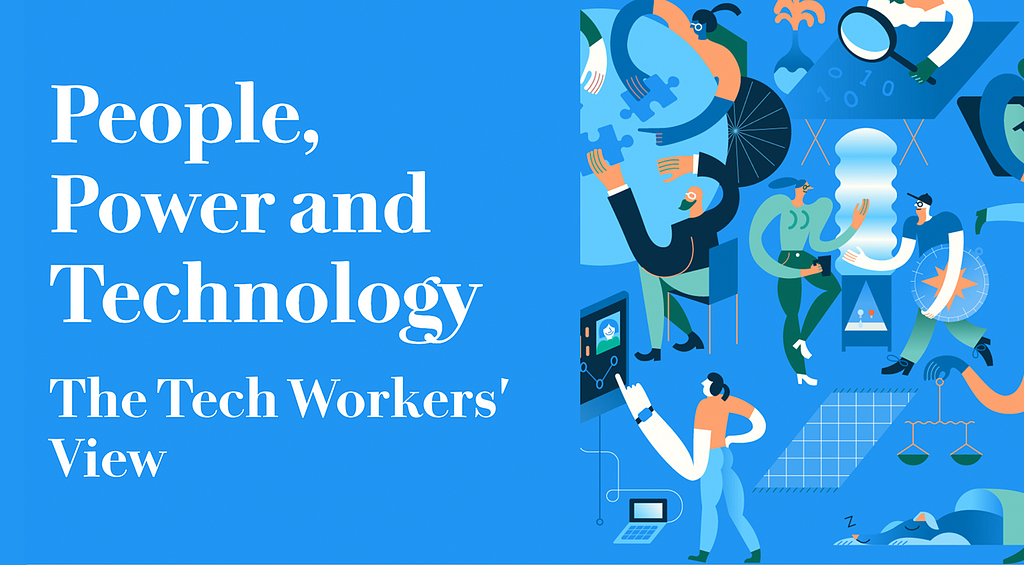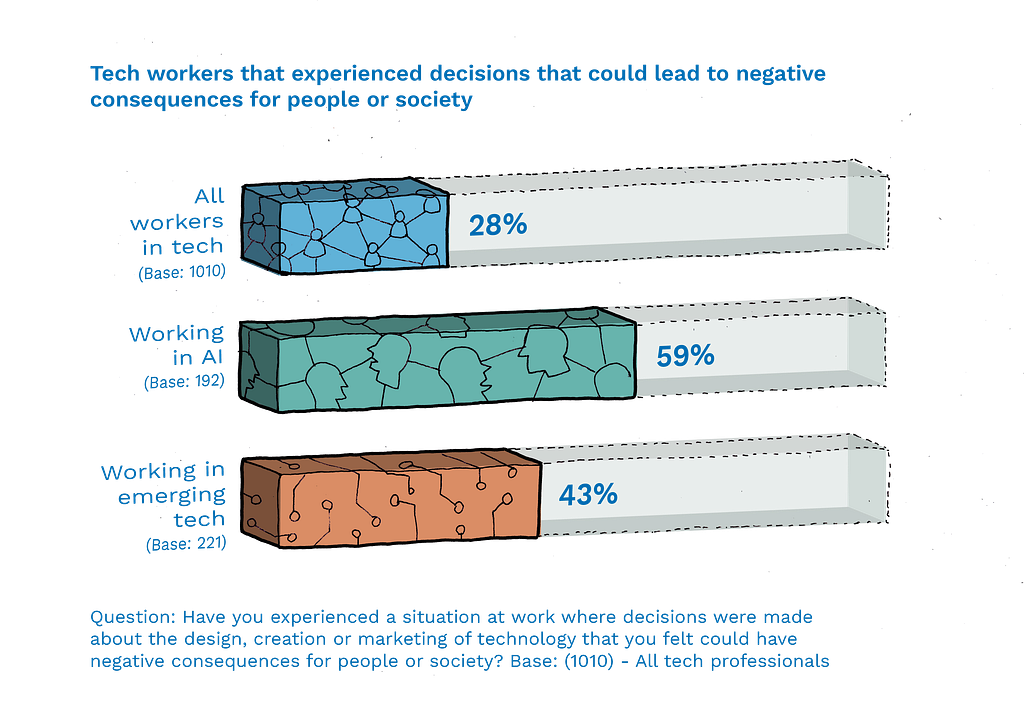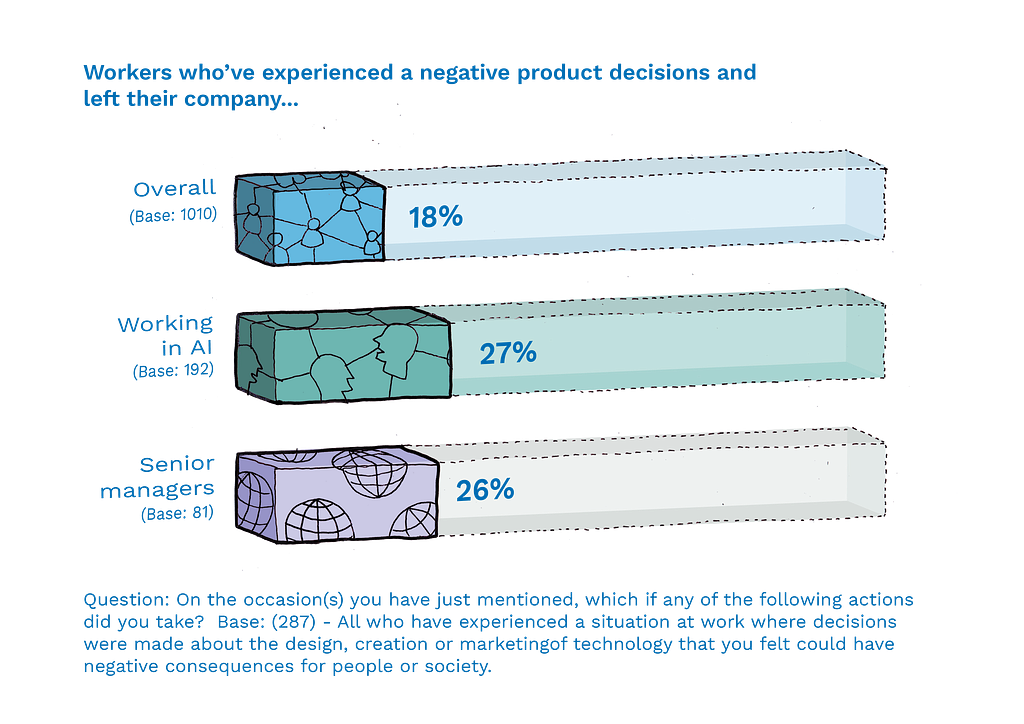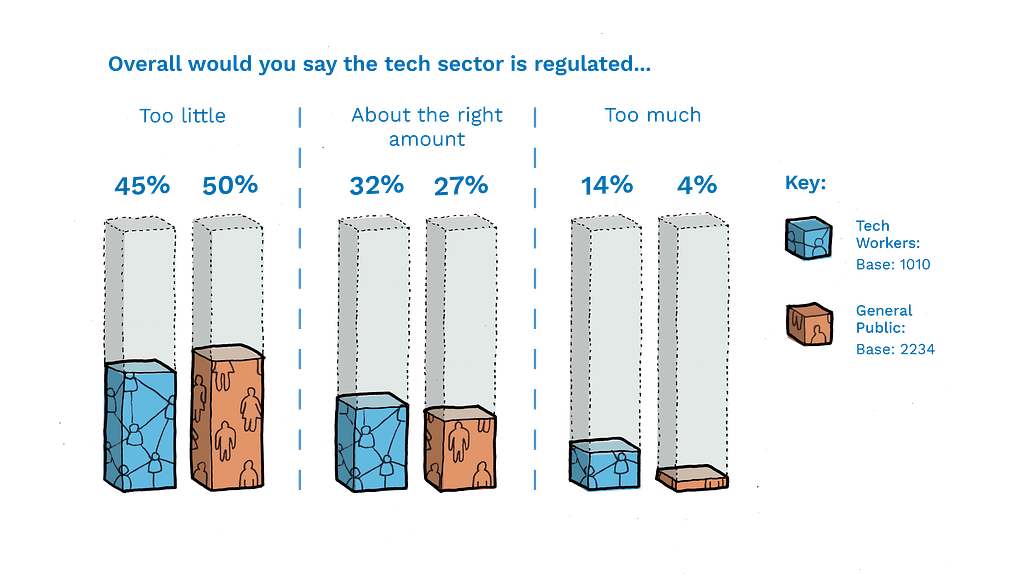Tech workers call time on moving fast and breaking things
Doteveryone research finds workers care about the societal impact of tech and are prepared to quit when they see harm done.

Tech CEOs and founders make a lot of noise. The ambitions and explanations of the likes of Mark Zuckerberg, Elon Musk and Jeff Bezos have dominated the response to growing public concerns about a series of tech scandals and the impacts of technology on people’s lives.
But the views of the people who work every day, designing and building tech products and services, have gone largely unheard. People Power and Technology: The Tech Workers’ View changes that. It’s the first in-depth research into the hopes and concerns of more than 1,000 people working across a range of technology roles.
And it reveals that UK tech workers:
- need guidance and skills to help navigate new dilemmas
- have an appetite for more responsible leadership
- want clear government regulation so they can innovate with awareness

Tech workers believe in the power of technology to do transformative good for society — in tackling climate change or helping support the vulnerable. 90% say technology has benefited them as an individual and 81% that it’s benefited society as a whole.
But too often they come across irresponsible choices during the development of a product and significant numbers are prepared to vote with their feet when they do.
More than a quarter (28%) said they’d experienced a situation at work where decisions were made about the design, creation or marketing of a technology that they felt could have negative consequences for people or society. Almost one in five (18%) of those went on to leave their job as a result.

Their concerns include the potential of their products to create addictiveness, job losses, and isolation. They also highlighted failures in safety and security and inadequate testing before product releases.
These issues are much more common in the Artificial Intelligence sector.
59% of people working in AI have experience of working on products that they felt might be harmful for society and more than a quarter (27%) of those quit their jobs as a result.

Every technology worker that leaves a company does so at an estimated cost of £30,000.

Ignoring workers’ concerns is bad for business — especially in such a competitive market for skilled workers — 93% of employers have struggled to recruit tech roles in the past year.
And the research shows that where organisations meet their teams’ needs, it works. 79% of tech workers who raised concerns about potentially harmful product decisions either internally or externally were happy with the outcome, preventing costly and disruptive job losses.
“Any entrepreneur knows that hiring and keeping good people is one of the secrets of a successful business.” — Martha Lane Fox, Founder and Executive Chair of Doteveryone
Almost two-thirds of people working in tech (63%) would like more opportunities to assess the potential impacts of their products but at the moment, they say anticipating consequences of products for people and society ranks as the lowest priority in their work.
These findings show that there is an opportunity for business leaders to take a new approach by addressing tech workers’ appetite to work responsibly.
“For companies keen to retain the best tech talent this report highlights the need to ensure that employees are empowered to raise concerns as technology is being developed. Ultimately this will help companies develop better products and services, with fewer unforeseen risks.” — Anthony Walker, Deputy CEO of techUK
Organisations that balance growth and societal impact, that create opportunities and deploy resources to consider consequences and that have effective mechanisms to hear and address concerns when they arise will lead a new wave of thriving, sustainable technology businesses able to realise the full potential of responsible innovation.
The tech sector has a reputation as being allergic to regulation. But among tech workers, it’s the preferred way to ensure the societal impacts of their products are taken into account — ahead of industry standards or company policies. At the moment, though, almost half (45%) of tech workers say the sector is regulated too little.

Innovation and ethics are usually seen as two separate things, often in opposition to one another. By its nature, innovation requires people to do new things in ways that haven’t been seen before. And tech workers need ways to navigate this. They may be pushing boundaries but they still need to know where they draw the line. What is acceptable and what is not.
These findings show that there needs to be a new way of seeing, and doing, innovation — one that puts ethics and responsibility at its heart.
We, therefore, recommend that businesses should:
- Implement transparent processes for staff to raise ethical and moral concerns in a supportive environment.
- Invest in training and resources to help workers understand and anticipate the social impact of their work.
- Use industry-wide standards and support the responsible innovation standard being developed by the BSI – 78% of workers favour such a framework.
- Engage with the UK government to share best practice and support the development of technology literate policymaking and regulation.
- Rethink professional development, so that workers can draw on wider skills and knowledge bases — not just their own ingenuity and resources.
And the UK Government should:
- Provide incentives for responsible innovation and embed this into the Industrial Strategy.
Read and download the full report at: doteveryone.org.uk/report/workersview
Let us know what you think on Twitter with #PeoplePowerTech and tagging us in @doteveryone. Or drop us a message with your views via [email protected]
All the data used in the report has been published under Creative Commons license and is available to download from: https://github.com/Doteveryone/PeoplePowerTech-WorkersView
Tech workers call time on moving fast and breaking things was originally published in Doteveryone on Medium, where people are continuing the conversation by highlighting and responding to this story.